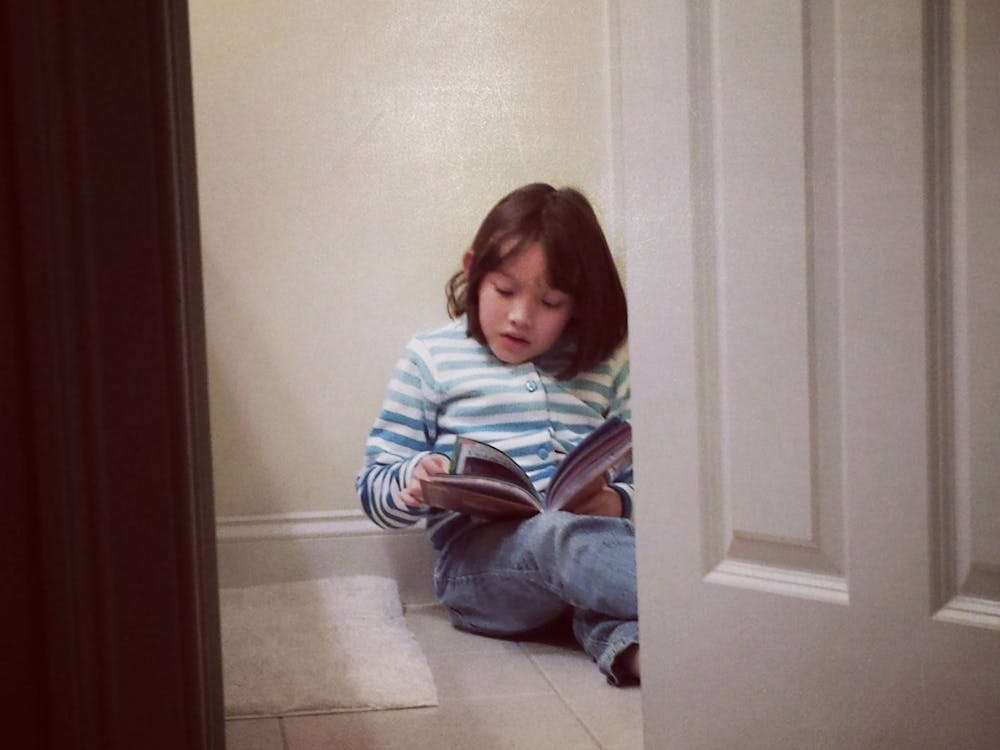Anyone who has followed this column probably knows that I have considered the recent live-action fairytale films to be disappointing at best. Both Snow White and the Huntsman and Maleficent suffered from poor acting, poor direction and heavy-handed attempts to “update” their respective stories by adding overly contrived drama.
While they had strong casts and performances, nearly every other aspect of the films fell short in some way or another. Having seen these two films, my expectations were not high when I went to see Cinderella, directed by Kenneth Branagh. This fairytale often gets heavy criticism for its original film format, so how could an attempt to reimagine the story and film possibly fare well?
Surprisingly it works better than one might think, mostly because little re-imagining was actually done. Of course, this doesn’t mean that the film is particularly good, but at least it’s not a butchered mess.
The story of Cinderella is well-known, although this film does make a few small revisions to the tale. The film opens with Cinderella’s (Lily James) life with her loving parents, particularly her mother. Before her mother’s passing, she teaches the young Ella (Cinderella’s childhood name) the importance of both kindness and courage and imparts to her some knowledge about the existence of magic.
As might be expected for a fairytale, Ella’s loving father then marries one of the most hateful people alive, dies and leaves Ella alone with an abusive stepmother and stepsisters. After the local royalty announces a ball to find a suitable wife for the young heir-apparent, the ever-compassionate Cinderella desperately seeks a way to attend the party, despite protests from her extended family. Of course, she may need the help of a little magic...
Based on this summary alone, audiences might assume that this story is exactly the same as the original 1950 animated musical. They would be right. In truth, very little has been changed or updated in Branagh’s film story-wise. The classic characters all behave as one would expect them to, the plot follows its original inspiration infallibly and even the actors clearly draw heavy inspiration from the 1950s performers.
Take for instance Cate Blanchett who plays Lady Tremaine, Cinderella’s cruel stepmother. Her performance in the film is spectacular, embodying everything that her character should. She’s devious, abusive, power-hungry and clearly favors her own kin. There’s a sliminess in the character that Blanchett is able to capture perfectly, and audiences will love to hate her.
Of course, her performance is also a nearly perfect reiteration of Eleanor Audley’s 1950 Lady Tremaine. While this isn’t necessarily a bad thing (if Glenn Close’s Cruella DeVille has proven anything, it’s that live adaptations of comically-evil villains can be hilariously entertaining), it does leave the viewer feeling as though the film lacks freshness.
This lack of freshness is the film’s greatest flaw. Whereas prior live-action adaptations suffered from trying to change the source material too much, often in nonsensical ways, this new version suffers from the opposite problem. There’s simply not enough new material to justify its existence. Everything plays out as one would expect, and there’s not enough variety to keep the story interesting.
The underdevelopment of the Cinderella character feels like a particularly wasted opportunity. If any character or element of the story deserved to be reimagined for a modern audience, it’s Cinderella. Her one-dimensional desires and overall passivity have been a point of criticism for years. Unfortunately, outside of a few short scenes that are woefully underutilized, the same passivity plagues James’s role.
While the message that the kindhearted receive their reward in the end is certainly one befitting a Disney fairytale, in this day and age one would hope for a bit more oomph and strength from a female lead. The idea of waiting for destiny to give one a happy-ever-after in the form of marriage is insultingly simplistic and outdated, especially when Disney has proven multiple times that they are capable of creating far more capable stories and characters.
As far as an adaptation of the original story goes, one can’t go wrong with Cinderella. It perfectly captures the story, essence and characters of the original work, and brings them to life with beautiful visuals and excellent acting.
Unfortunately as an adaptation, it fails to bring enough to the table that is new or refreshing. Every fault and weakness in the original story is still present here.
No matter how skilled the performances are, they cannot cover the fact that their sources are too one-dimensional to function in this day and age. While Cinderella fares better than other films of its kin (if only because it captures the spirit of the original story perfectly), it loses points for offering absolutely nothing new to justify its existence. If you’re a fan of the original fairytale, then give this a watch. It’s the most accurate adaptation we’re likely to ever see. For everyone else, this is simply not worth your time.
Overall rating: 2.5/5




